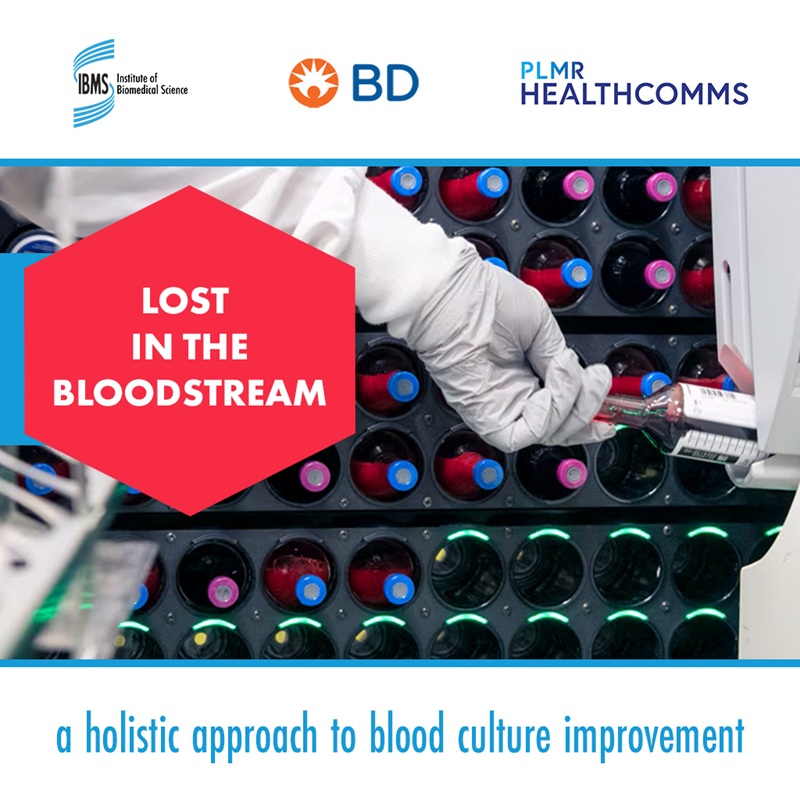Fighting the Scourge of Typhoid Fever

In 'Health for Heroes' our History Committee explore the symbiotic relationship between the development of clinical and laboratory medicine and the experiences gained in conflicts around the world
Image Credit: Wellcome Library, London
Almroth Wright, 1861–1947
Typhoid fever, a deadly disease caused by the bacterium Salmonella typhi, was a significant threat to military and civilian populations in the 19th and early 20th centuries. The fight against this disease saw remarkable advancements in medical science, led by pioneers like Sir Almroth Wright, whose work in developing the first anti-typhoid vaccine saved countless lives and laid the foundation for modern immunology.
The Challenge of Typhoid
During the 19th century, typhoid fever had a death rate of 10-30%, devastating communities and military forces alike. The disease was rampant in areas with poor sanitation and contaminated water supplies. Soldiers suffered greatly, as the close quarters and unsanitary conditions of military camps provided the perfect breeding ground for the bacteria.
Almroth Wright's Breakthrough
Sir Almroth Wright, a pioneer in medical laboratory science, recognised the potential of vaccination to combat typhoid fever. In 1896, inspired by earlier work on the development of antitoxins, Wright began his research on a vaccine. He tested the effect of injecting heat-killed typhoid bacteria first on himself and his co-worker, then on 15 soldiers. The results were promising, showing that the vaccine produced antibodies and conferred immunity to typhoid.
The Boer War and Initial Trials
Despite the promising results, Wright faced scepticism and resistance. During the Boer War (1899-1902), the British War Office agreed to inoculate soldiers, but only on a voluntary basis. Out of 448,000 soldiers dispatched, only 14,000 were inoculated. While anecdotal evidence suggested the vaccine's efficacy—showing lower rates of disease among the inoculated—recordkeeping was poor, and the data was not statistically robust.
Controversy and Determination
Wright's work faced significant opposition from influential figures like Karl Pearson, a leading biostatistician who criticised the lack of rigorous statistical evidence. A War Office inquiry ultimately judged the vaccine program ineffective, leading to its suspension. Undeterred, Wright resigned his position at the Royal Army Medical College and continued his research at St. Mary's Hospital Medical School in London, where he established a vaccine and inoculation clinic.
A Turning Point: The Maidstone Typhoid Outbreak
In 1897, the largest typhoid outbreak in the UK occurred in Maidstone, affecting nearly 2,000 people. Wright led the first recorded trial of typhoid immunisation during this outbreak. Volunteers from a nearby psychiatric hospital participated in the trial, and none of the 84 vaccinated individuals contracted the disease, compared to four cases in the unvaccinated group. This success demonstrated the potential value of the vaccine and led to larger trials.
World War I: Mass Immunisation
On the eve of World War I, Wright petitioned the War Office to implement a mandatory typhoid inoculation program for British troops. With Lord Kitchener's support, the program was approved, and 10 million vaccine doses were produced at St. Mary's. As a result, Britain was the sole combatant nation with immunised troops at the war's start, significantly reducing the incidence of typhoid fever among soldiers.
Legacy of the Anti-Typhoid Vaccine
Wright's determination and pioneering work in immunology transformed the fight against typhoid fever. His development of the first effective anti-typhoid vaccine not only saved countless lives during wartime but also paved the way for modern vaccine development and public health initiatives. The success of this vaccine underscored the importance of scientific innovation and rigorous research in combating infectious diseases.
The battle against typhoid fever highlights the critical role of medical research and innovation in improving public health. Sir Almroth Wright's work remains a testament to the impact of determined scientific inquiry and the power of vaccination in saving lives.
To explore more about the advancements in medical science during wartime, read the IBMS History Committee’s: HEALTH FOR HEROES: A BRIEF HISTORY.




